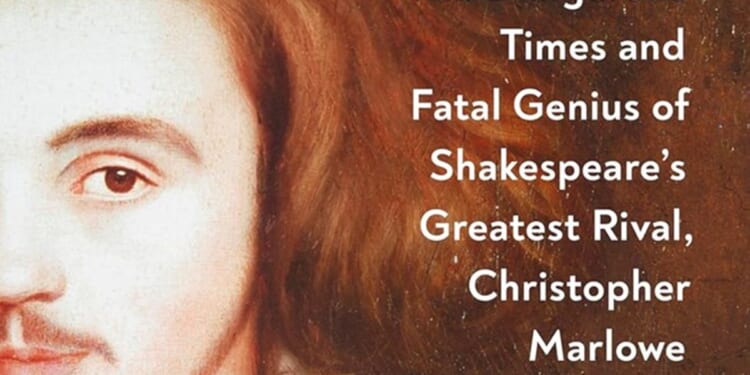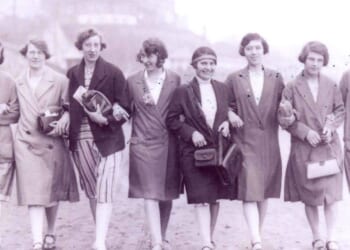CHRISTOPHER MARLOWE, the son of a Canterbury shoemaker, was a genius of the English Renaissance. For Stephen Greenblatt, Marlowe was the genius. Atheist, spy, homosexual, and an innovative and liberating poet, Marlowe seems to have spent his life becoming a legend, a status ratified when he was murdered in a tavern brawl in an argument over the bill, or “reckoning”, when he was just 29.
His reputation precedes him, and is writ large around his handful of plays. His powerful and eloquent wielding of words into blank verse — “Marlowe’s mighty line”, as Ben Jonson called it — still strikes like lightning when read aloud or performed in the theatre. His poetry declaims itself as the words beat into the ear, mind, and heart like the long, regular strokes of a tennis match played on a clay court.
Marlowe was an outsider who wrote about outsiders — whether that was a magus scholar (Dr Faustus), a Machiavellian (Barabas in The Jew of Malta), a conquesting tyrant (Tamburlaine), an adventuring refugee (Aeneas in Dido, Queen of Carthage), or a king who liked to have sex with men (Edward II). He was also a translator of Ovid and Lucan. Greenblatt’s acute sense of what constitutes literary originality fully appreciates Marlowe’s writing — its cultural, political, social, and philosophical contexts — and makes me want to re-read the works themselves.
Greenblatt’s Marlowe definitely fulfils another part of his reputation — that of an overreacher. Referring to one of the greatest and most original narrative love poems of the Elizabethan age, Marlowe’s “Hero and Leander” —
She trembling strove; this strife of hers (like that
Which made the world) another world begat
Of unknown joy —
Greenblatt notes: “Nowhere in Judaism, Christianity, or Islam is the world said to have been created in the ‘strife’ of sexual intercourse. It is as if for this pagan setting, the poet generated an alternative creation story.”
Marlowe’s relationship with Shakespeare is carefully depicted. Marlowe was born in February 1564, Shakespeare in the April. They benefited from a similar, humanist education in their local grammar schools. Greenblatt names the study of mainly classical — and, therefore, pagan — texts the “open secret” of an educational system that was expected to produce the country’s elite and ruling classes.
Shakespeare and Marlowe had mutual friends — Thomas Nashe, Philip Henslowe — and moved in similar circles — Robert Greene, Thomas Kyd — and knew aristocracy and royalty — the Earls of Derby, Northumberland, and Southampton, and Queen Elizabeth. It seems that Marlowe and Shakespeare collaborated on the early, “Shakespearian”, Henry VI plays. But their artistic, political, and religious perspectives, as well as their poetic ears, are altogether different and highly distinctive.
This masterly biography presents its subject throughout as an exception. Each chapter tells its own fascinating story as the episodes and aspects of Marlowe’s life are presented with vivid imagination and expert commentary. Greenblatt, like Marlowe, is anti-religious. Greenblatt, like Marlowe, knows what it takes to innovate and influence a whole generation of writers and thinkers. Greenblatt, like Marlowe, is a genius of the English Renaissance. Dark Renaissance represents a perfect pairing of biographer and subject.
The Revd Dr Paul Edmondson is a Shakespeare scholar who works for The Shakespeare Birthplace Trust.
Dark Renaissance: The dangerous times and fatal genius of Shakespeare’s greatest rival, Christopher Marlowe
Stephen Greenblatt
Bodley Head £25
(978-1-84792-713-2)
Church Times Bookshop £22.50
















